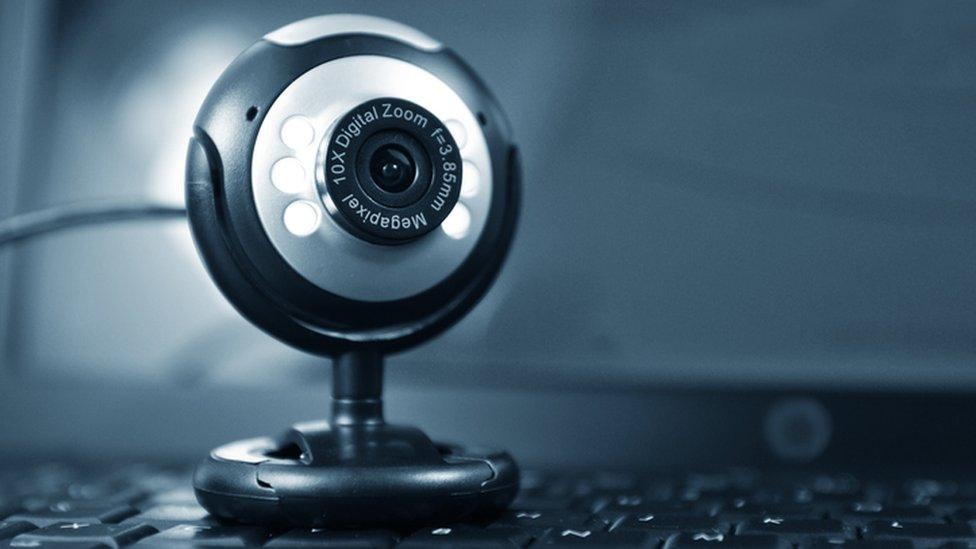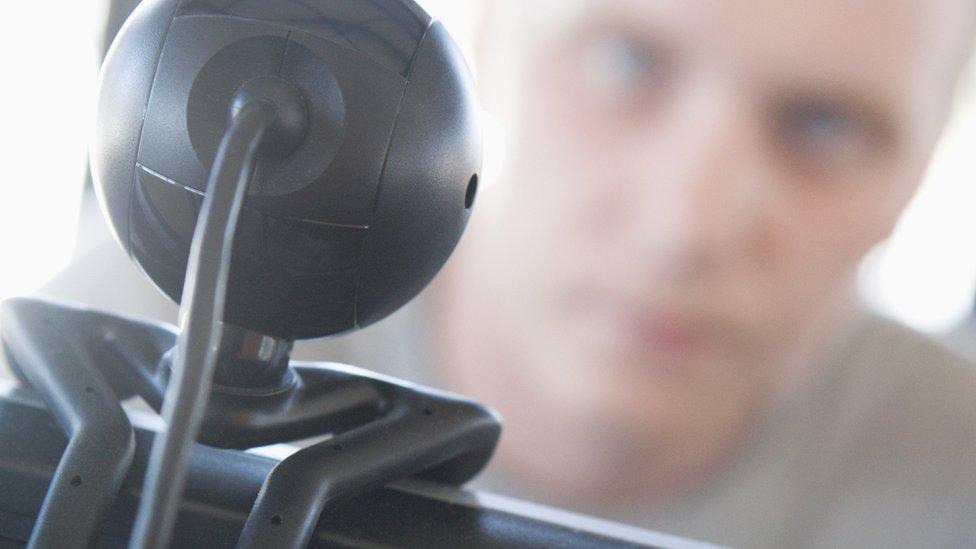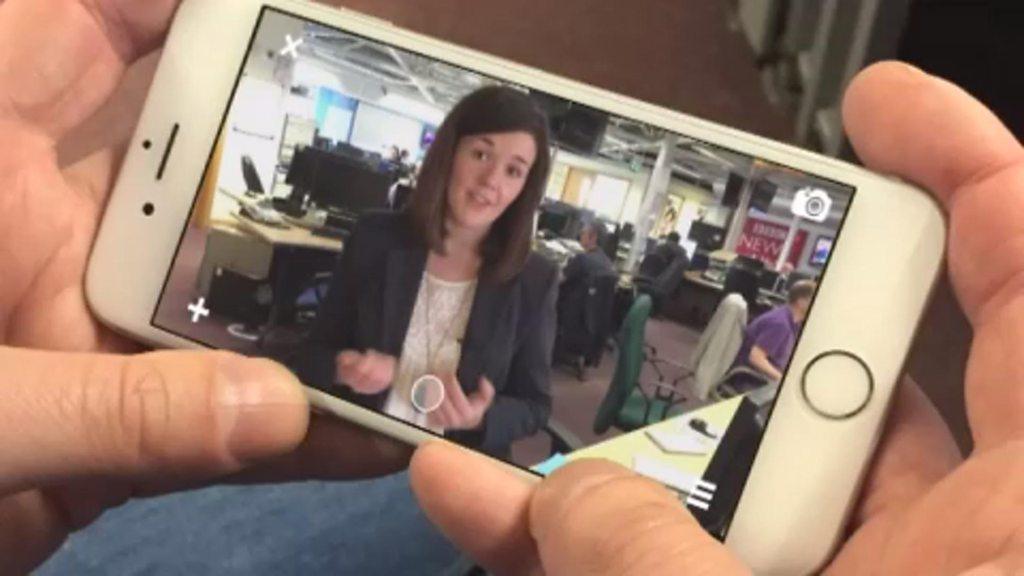Online blackmail: Northern Ireland man describes 'sextortion'
- Published

Last month, the PSNI said that 100 webcam blackmails had been reported to them so far in 2016
A Northern Ireland man has described being the victim of blackmail after meeting a woman online.
It comes after police revealed that four men have killed themselves in the UK in the last year after becoming victims of "sextortion".
Last month, the PSNI said that 100 webcam blackmails had been reported to them so far in 2016.
NI man Jimmy, in his 20s, exchanged photos, including sexual images, with a woman he met through a dating app.
"Literally 10 minutes after I'd sent her my profile I got a message saying 'what would you do if I sent these photos to your friends and family?'" he said.
'Really stressful'
BBC News NI's Jayne McCormack shares three simple online safety tips
Jimmy said the woman then told him to subscribe to live webcam websites and then demanded money by wire transfer, messaging him "every few minutes to check where I was".
"She started sending me photos of my family from my social media contacts, saying she would send the pictures to them.
"It was really stressful and I didn't know what to do. I caved in and sent her £150. She said she wanted £300 but I said no, deactivated my social media account and went to the police.
"I was so worried about what my friends and family would think. I've spoken to my mum about it, that was tough enough, but I still can't talk to anyone else."
In June 2015, Ronan Hughes, a 17-year-old from Coalisland, took his own life having been the victim of webcam blackmail.
Last month, a 31-year-old man appeared at Bucharest municipal court in Romania, charged with producing and distributing indecent images of children as well as blackmail as part of the investigation into Ronan's death.
PSNI Det Ch Insp James Mullen said everyone needed to be aware of the risks involved online, especially on social media.
"Webcam blackmail usually involves people being lured into taking off some or all of their clothes in front of their webcam, only to be told that you have been recorded and that the video will be posted online and/or shown to the victim's contacts unless a fee is paid - usually a substantial sum of money," he said.
"Sometimes, the victim is also enticed into performing intimate acts.
"Police are committed to fully investigating this type of crime when it is reported to us, however, we want to do all we can to raise awareness so this doesn't happen at all."

PSNI advice on online safety:
Do not get lured into compromising situations such as removing clothes or performing intimate acts online. You do not know who may see the images
Always remember that what goes online may well stay online
Be wary about who you invite or accept invitations from on social networking sites. Do not accept friendship requests from complete strangers
Update the privacy settings on your social networking accounts so only people you know can view your account
Do not include any sensitive, private or confidential information in profiles
If you use online dating sites, choose those that offer the ability to email prospective dates using a service that conceals both parties' true email addresses
Also on dating sites, set up a separate email account that does not use your real name. This is very simple and quick to do using such providers as Hotmail, Yahoo! Mail or gmail
Quickly block nuisance and fraudulent users from further contact with you and also report them for abuse
If you become a victim of this type of scam, do not respond to the blackmailer's demands, but report the issue to the police and the relevant social networking site
If you think that you have been persuaded by anyone to part with payment details, contact your bank or card issuer immediately
- Published30 November 2016

- Published30 November 2016

- Published28 October 2016

- Published30 November 2016

- Published27 October 2016
